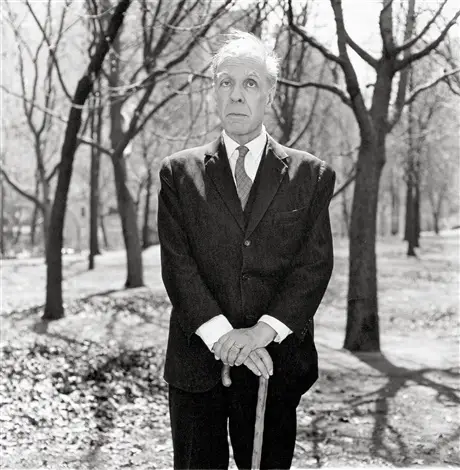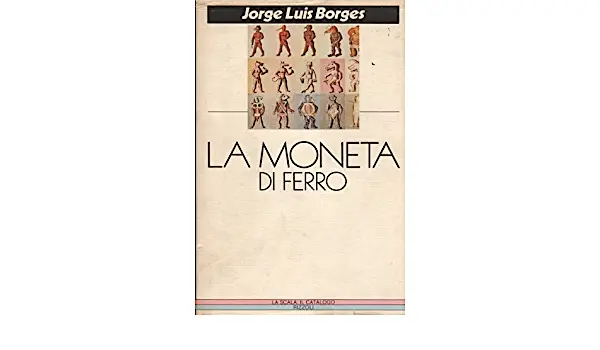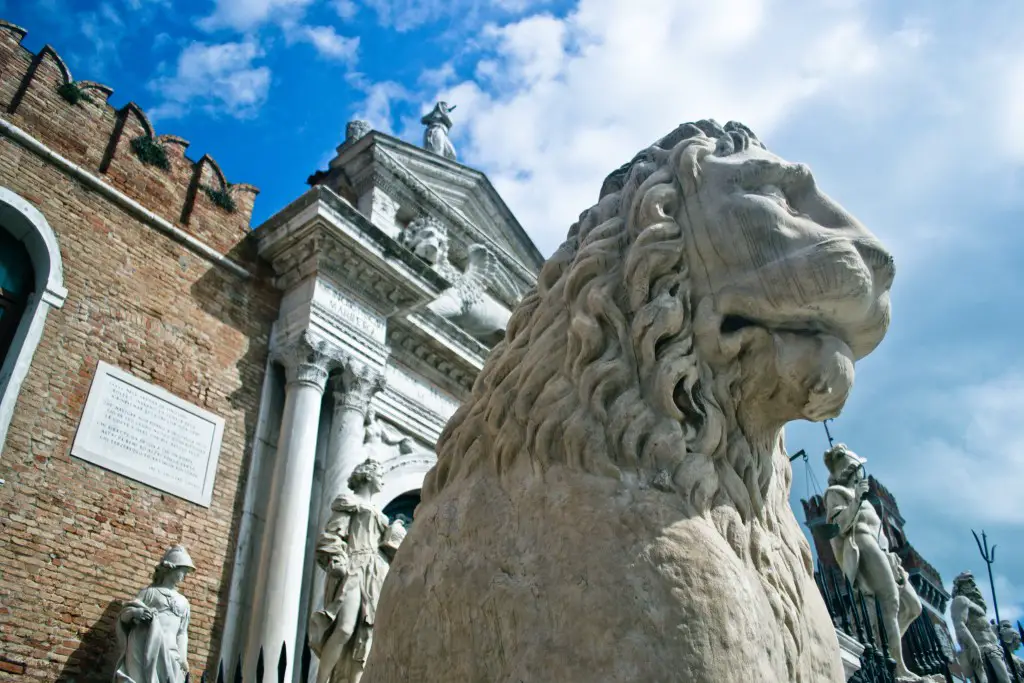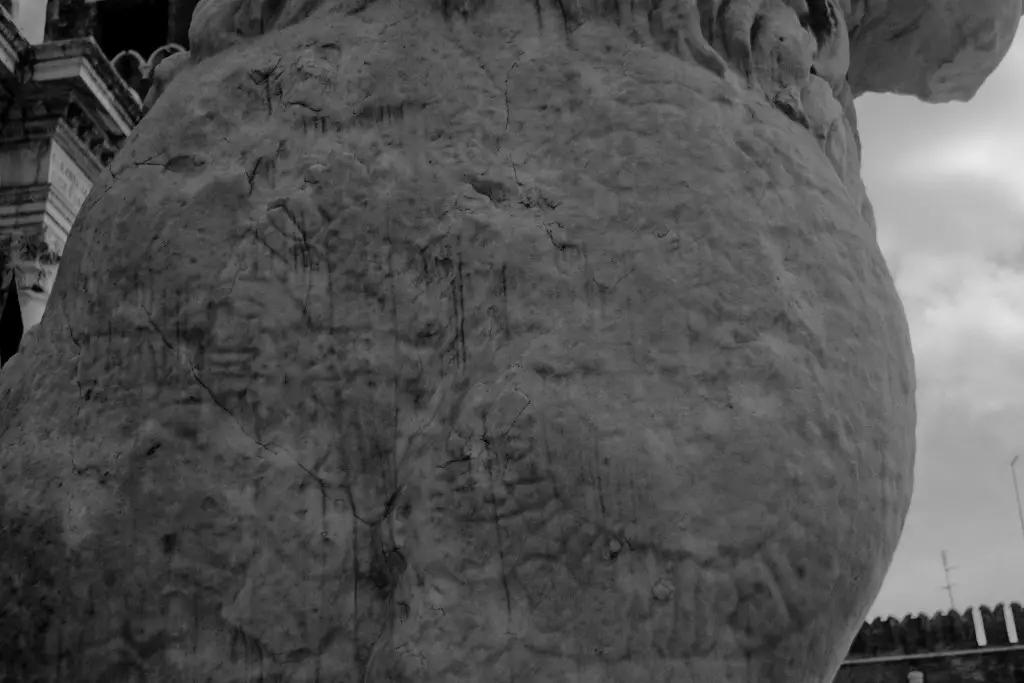How is it possible to conceive a poetic form made up of a single, total and indivisible expression? The skald tries to answer this question with a long journey that coincides with his own life. Once the Individual Ego has been exhausted in a maelstrom of adventures, the protagonist finally manages to grasp the word, which for him contains all the chaos in the simplicity of a single runic engraving: it is undr which means "wonder". Therefore, this "wonder" is the cornerstone of Norse poetics for Borges: it is the ability to be amazed and moved that manages to synthesize the apparent incoherence of chaos.
di Andrea Anselmo
Follows from part i
“When I speak of the North, I am mainly referring to the Scandinavian North. As for the history of that cult, it is quite simple: my father gave me a copy of the "Volsunga Saga" translated into English by William Morris. I read that poem, which has the same subject matter as the Nibelungenlied, the song of the Nibelungs, but is older and retains many mythological features which were lost in the late German version. […] Well, my father gave me that book and I was naturally fascinated by it; I asked him about Scandinavian mythology and he gave me a book that I still have, a manual of Scandinavian mythology from the Minor Edda. Together with Maria Kodama I have recently translated the first volume of Edda Minore, the Gylfaginning (by Snorri Sturluson ed), that is, “The hallucinations of Gylfi”. It is the first Scandinavian mythology textbook that exists, and was written in the thirteenth century. "
Osvaldo Ferrari, interview with Borges, 1984
Borges believed that, in the context of literary history, the Icelandic sagas were primitive forerunners of the novel. For the Maestro, a great lover of literature, who increasingly provided him with a refuge from incipient blindness, this primacy of the Icelandic sagas represented a historical precedent for his figure as a reader, poet and writer of short stories: "In the XNUMXth century the Icelanders discovered the novel - Flaubert's art". Furthermore, as we have just seen, the works on the poetics of the Icelandic scholar Snorri sturluson they were well known to him and perhaps Borges also identified himself in some way with that learned Icelandic scholar, just as he recognized himself as the continuer of Homer and Shakespeare. The memory of the great writers, destined to magically awaken in their followers, is a recurring theme in Borgesian work: let's think of stories like The Memory of Shakespeare o The immortal. The Maestro then visited Iceland on several occasions, as he reminds us in the radio interview of 1984, with the journalist Osvaldo Ferrari:
“I only know that I have returned to those themes and that I have not made three trips but, as William Morris would have said, three pilgrimages to Iceland. There I had the opportunity to converse with a priest of the ancient pagan divinities, a shepherd - a man, Maria Kodama told me, with a young face and a white beard, a giant, like all Icelanders, a shepherd of sheep (he had a flock of a hundred head ) - which celebrates the summer solstice: a British BBC broadcast was dedicated to this theme. In fact, even the English once worshiped those gods. And she moved me to find myself with someone who worshiped or professed the cult of those deities, who were once worshiped in England, the Netherlands, Holland, Germany, continental Scandinavia. Currently that cult has three hundred faithful; very ignorant people, who no doubt ignore mythology and keep only the names of the Gods. I was moved, I think I cried ... - I cry easily - not for things that can sadden me but for an emotion you feel; a bit like that character in a Lugones tale of which the author says: “And he cried with happiness”. "

Borges' tears do not clash with his “metaletterary” prose as, despite the cerebral nature of his enigmas, it is possible to reveal, with a careful reading of the various symbolic references, a very human feeling of wonder, beauty and nostalgia. To seal such impressions, in particular of those trips to Iceland, we are left with poems such as In Iceland the dawn, in the collection the Iron Coin:
This is the dawn
It predates its mythologies and the White Christ
He will generate the Wolves and the Serpent
Which is also the sea
Time does not touch it
He sired the Wolf and the Serpent
Which is also the sea
The Rune, the wonder and the creative ecstasy

In Borges the doors of transcendent perception and intuition would be openable through literary forms that bring with them ecstatic and fantastic emotions, which, adequately ridden, can allow a fleeting glance "on the other side". Dreams and memory would be the "registers" of this ecstatic inspiration. We recall in fact how Borges' interest is concentrated on dream episodes qualified as transcendent visions, such as the well-known dream of Coleridge, which inspired the poem kubla khan. Just as dreamlike is the inspiration of Caedmon, the first Saxon poet remembered by the venerable Bede and that Borges remembers on several occasions in his works.
For the Argentine Maestro memory retains the original vision, as the source of the poet's inspiration, of the rshi Vedic, of Odin who finds the Runes immolating himself on the axis of the world or rather of the one who, renouncing trade with men, dedicates himself to an ascetic task aimed at knowing "the other side". This is a widespread concept in various traditions, including Indo-European ones. About Latin vates, for example, linguist Calvert Watkins gives us a thorough insight into the relationships between Germanic - *wuot, furore, Latin vates precisely and the Celtic gwad e such:
"The root * uet- has lengthened o-grade cognates not only in Celtic but in Germanic, Pokorny IEW 1113. 6 These may be grouped as a noun * uot-o- (perhaps earlier a root noun) with a range of meanings like 'cognizance, knowledge, shamanic wisdom, tradition, poetry' appearing as Germanic * wopa- in Old English wop 'song, poetry', Old Norse odr 'poetry', as well as Old Irish fath 'prophetic wisdom', Welsh gwawd 'poetry '. From this noun we have a derived adjective with possessive accented thematic vowel suffix * uot-o- 'having * uot (o) -, shamanic wisdom' appearing as Germanic * wotha- in Old English wod, Old Norse odr 'furious, frenzied' , Old High German wuot 'insanitus', Gothic * wops, acc. wodan 'possessed'. Finally, with the suffix -e / ono- as in Gothic thiudans' king '(' who incarnates the tribe [piud] '), kindins' governor' ('who incarnates the kin-group [kind]'), Latin dominus' master '(' who incarnates the household [dom-] '), we have * uot-e / ono-, Germanic * wodilana- (' who incarnates shamanic wisdom, poetry ') in the divine name of Old Norse Odinn, Old English Woden, Old High German Wuotan. " (Calvert Watkins, How to Kill a Dragon, Oxford). "
In this regard, it is necessary to understand how this ecstasy could be achieved. Indeed, "the ascesis, Tapas [Latin tepeus, Italian warmth], [is] ritual warming, warmth, ardor obtained through austerity. It is an Indo-European tradition because in a parallel context extreme heat or anger (less, fury, ferg wut) play a similar role in heroic rituals "(Mircea Eliade, History of Religious Ideas and Beliefs). That same anger that inflamed i warriors in the guise of bears and wolves in the Norse sagas and which, not surprisingly, formed for Snorri the personal escort of Odin, or of *wuodanaz, the one who is in charge of the host of the furious [1]. In summary, in the conception of invasion and possession typical of Indo-Europeans in general, which in the Norse world finds full application, the fury that derives from divinity confers not only strenuous warrior skills but also the supreme sources for poetic and musical inspiration.
Borges' story that perhaps most of all betrays the master's interest in inspiration and the role of poetry among the Vikings is certainly Undr, in the collection The Book of Sand. Our author imagines recovering an interpolation to the Gesta Ecclesiae Hammaburgensis of Adam of Bremen [2]. The story in fact finds its beginning in the pagan temple of Uppsala. Here among the ancient mounds and the wolves that devour the victims of sacrifices to the Gods, two men meet. They are Norse poets, the so-called Warm up. One of the two narrates his very long and adventurous one search for the "word", or rather of a form of poetry so high and perfect that it contains within itself all the multitude of impressions and emanations, paradoxically synthesizing them in a single, supreme expression. Borges' idea is this: you can compose a novel the way you carve a rune. On one condition: having a "bola de cristal". Raising the chaos of simplicity forced into a symbol until it explodes in the solid mass of a fictional form [3].
How is it possible to conceive a poetic form made up of a single, total and indivisible expression? The skald tries to answer this question with a long journey that coincides with his own life. He dissolves his individual ego in a whirlwind of experiences of all kinds in the continuous search for the "word". He faces duels and slavery, he engraves Runic epitaphs in the form of a Dragon during his raids in the Black Sea:
“On one side of the Black Sea is the runic epitaph I engraved for my companion Leif Arnarson. I fought with the Blue Men of Serkland, the Saracens. "

This reference recalls the discovery of various epitaphs engraved by Viking mercenaries, such as the epitaph engraved on the Lion of Piraeus near Venice, the work of Varangian mercenaries at the court of Byzantium. The statue of the Lion of Piraeus, transported by the Crusaders to Venice, is located at the entrance to the old arsenal. Thus reads the engraving in the form of a Dragon:
“Asmund engraved these runes with Asgeir and Thorleif, Thord and Ivar, at the request of Harold the Tall, although the Greeks on reflection forbid it. "
“Hakon with Ulf and Asmund and Örn conquered this port. These men and Harold the Tall imposed a hefty tax due to the revolt of the Greeks. Dalk is held captive in distant lands. Egil went on a mission with Ragnar to Romania and Armenia. "

Needless to say, the runes are the magical whispers found by Odin, father of the ecstatic inspiration of poets and beast warriors, at the end of his well-known self-immolation to the world tree. Once the Individual Ego has been exhausted in this maelstrom of adventures the protagonist finally manages to steal the word that, for him, contains all the chaos in the simplicity of a single runic engraving: it is undr what does it mean "wonder" [4].
Therefore, and the wonder the cornerstone of Norse poetics for Borges: it is the ability to be amazed and moved that manages to synthesize the apparent inconsistency of chaos. Borges' paradoxes and their contradictions are sublimated by the poet's ability to feel the thrill of amazement and transmit it to posterity with his poems and his memory, transcending the single ego, exhausted by the multiplicity of experiences, and finally elevated to observe beyond the veil and beyond the bonds that the great Indo-European gods [5] of the night sky woven. But those same Gods who bind us provide us as Odin, father of the Runes, the means to transcend: warrior ecstasy and poetic emotion.
Note:
[1] Emile Welcome, Vocabulary of Indo-European Institutions, vol I. Einaudi.
[2] We owe to him the description of the Swedish temple of Uppsala, of the sacrifices that were held there and of the three great statues of the major gods: Odin, qualified as a deity of fury by Adam as Id est Furor, of Thor and of Friccone from the great member. Dumezil refers to this description for his well-known conception of the tripartite ideology of the Indo-Europeans.
[3] Jorge Luis Borges, translated by Andrea Bianchi (via Pangea).
[4] As in English wonder.
[5] “A priest king, to be exact a sorcerer king, a shaman king; as well as Varuna plays the role of priest towards Indra. Odhinn is not only the great god, but also the great "Thulr" and that is why he has developed the ultimate means of magic, of his magic, the runes. It is possible that the name of the runes is related to the name of the Indian and Greek binding gods Varuna and Ouranos. The Germanic *rune - magical secret - could actually derive from Indo-European *Waruna"(G. Dumezil, Mythes et Dieux des Germains.
